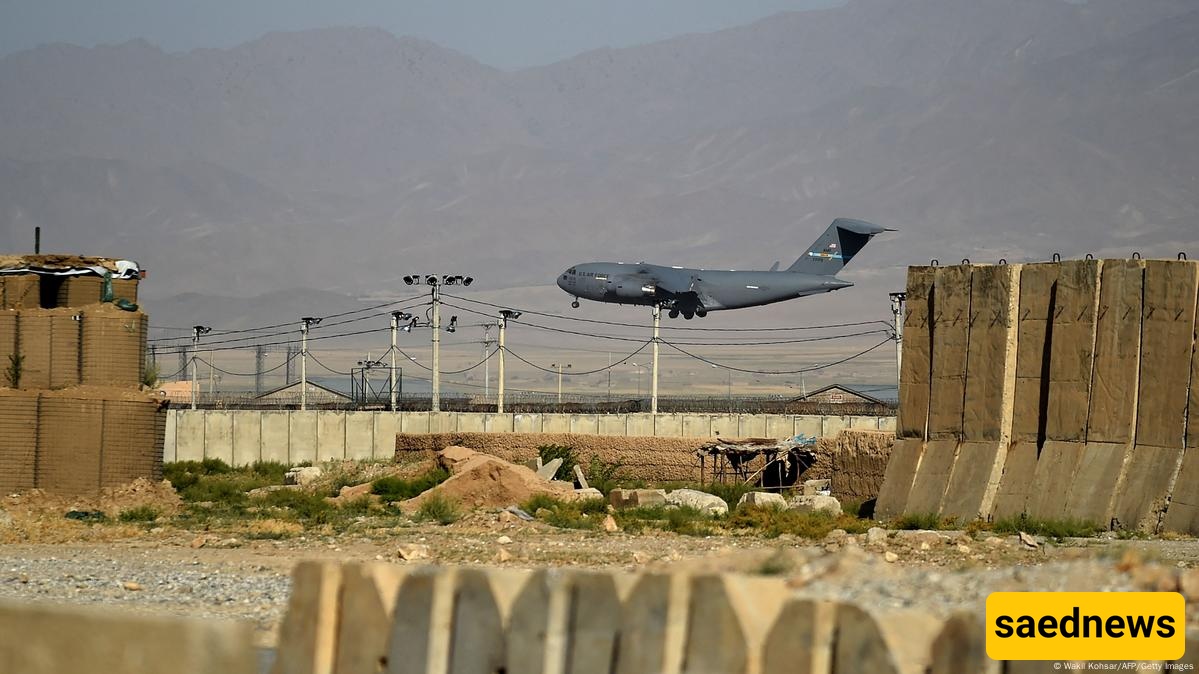SAEDNEWS: Trump has threatened Afghanistan with “bad things” unless it returns control of the Bagram Airbase, escalating tensions with the Taliban-controlled government. The US president hinted at possible consequences without specifying details.

According to Saed News; US President Donald Trump has issued a stark warning to Afghanistan, claiming that unless the Taliban-controlled government returns control of the Bagram Airbase, “bad things are going to happen.” The threat, made on Saturday via his Truth Social platform, follows Afghanistan’s refusal to hand back the sprawling facility, located 64km (40 miles) from Kabul.
“If Afghanistan doesn’t give Bagram Airbase back to those that built it, the United States of America, BAD THINGS ARE GOING TO HAPPEN!!!” Trump wrote.
Bagram was the main US military hub in Afghanistan during the two decades following the September 11 attacks. The base held thousands of prisoners over the years, many detained without charge, and numerous reports documented abuse and torture under the so-called “war on terror.”
After the US withdrawal in 2021, the Taliban regained control of the facility. Trump has repeatedly criticized this loss, highlighting its strategic proximity to China and its importance in regional geopolitics.
During a press conference in the UK, Trump confirmed that efforts to regain the base were underway, calling it “a little breaking news.” He explained, “We’re trying to get it back because they need things from us.”

Despite Trump’s push, Afghan officials remain firm against reinstating a US military presence. Zakir Jalal, a Ministry of Foreign Affairs official, stated, “Afghanistan and the United States need to engage with one another … without the United States maintaining any military presence in any part of Afghanistan.”
He added that Kabul seeks to develop political and economic ties with Washington based on “mutual respect and shared interests.” The Taliban’s stance underscores their commitment to sovereign control and the controversial legacy of foreign military occupation.
Trump has frequently blamed his predecessor, Joe Biden, for the chaotic withdrawal from Afghanistan, linking it to the loss of Bagram. His criticisms extend to the perceived rise of Chinese influence in Afghanistan, a concern he cites to justify a renewed American presence at the base.
Asked whether he would deploy troops to reclaim Bagram, Trump avoided a direct answer, saying, “We won’t talk about that.” Yet he emphasized, “We want it back and we want it back soon, right away. And if they don’t do it – if they don’t do it, you’re going to find out what I’m gonna do.”
Bagram’s return is not just about a single military installation; it is symbolic of US influence in Central Asia. Control of the base could offer strategic leverage regarding regional security, counterterrorism operations, and proximity to China.
For Afghanistan, acquiescing to Trump’s demands could risk domestic legitimacy and provoke political backlash. The Taliban’s resistance highlights ongoing tension between Afghan sovereignty and American geopolitical ambitions.
Trump’s aggressive tone has reignited debate about US foreign policy and military intervention. Analysts note that vague threats without clear strategy may escalate tensions unnecessarily while offering limited diplomatic leverage.
Experts are watching closely to see if the US will pursue a diplomatic, economic, or military solution, and how this could affect broader US-Afghan relations, regional security, and the global perception of American foreign policy.
Trump’s warning over Bagram demonstrates his continued focus on Afghanistan as a strategic flashpoint. With no detailed plan shared publicly, the “bad things” he threatened remain mysterious, leaving international observers and the Taliban alike uncertain about the next moves. The standoff underscores the delicate balance between American strategic interests and Afghan sovereignty—a geopolitical drama that is far from over.

